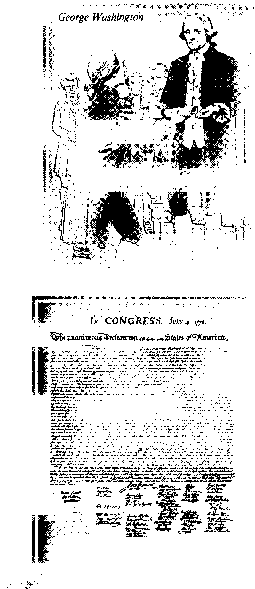
55
The Boston Tea Party in 1773 was the protest against the Stamps for tea taxes, when the colonists threw the
East India Company's
tea into the harbour. The Parliament undertook repressions though the opposition of
Whigs were against this disastrous policy.
There were military conflicts near Lexington and Concord near Boston. The Congress of the United Colonies
at Philadelphia elected George Washington, of Virginia commander of their armed forces (1775). A year later,
on the 4 of July, 1776, the Congress adopted the Declaration of Independence.
The English army was defeated in the battle of Saratoga and was forced to surrender. The war of
Independence was won by the American forces supported by the French and when the Peace treaty was signed
in 1782 in Paris, thirteen North American colonies transformed themselves into the United States of America
with George Washington as their first President.
The defeat of Britain in North America ended the period of George III personal rule. The new Tories were
his only hope, and in 1783 the King invited William Pitt, the younger, Lord Chatham's twenty-four year old son
to form a Cabinet.
The reign of George III was the period of the great activity of the Literary Club, headed by the literary and
linguistic dictator Dr. S. Johnson among whose members were Sir Joshua Reynolds, Goldsmith, Burke, Fox,
Gainsborough, Sheridan and Adam Smith. The book by Adam Smith "The Wealth of Nations" appeared in the
year of the Declaration of Independence; in it the great economist presented the first classical system of
economic activities of people. James Watt in 1782 improved the steam engines and his inventions made
possible the Industrial Revolution.

